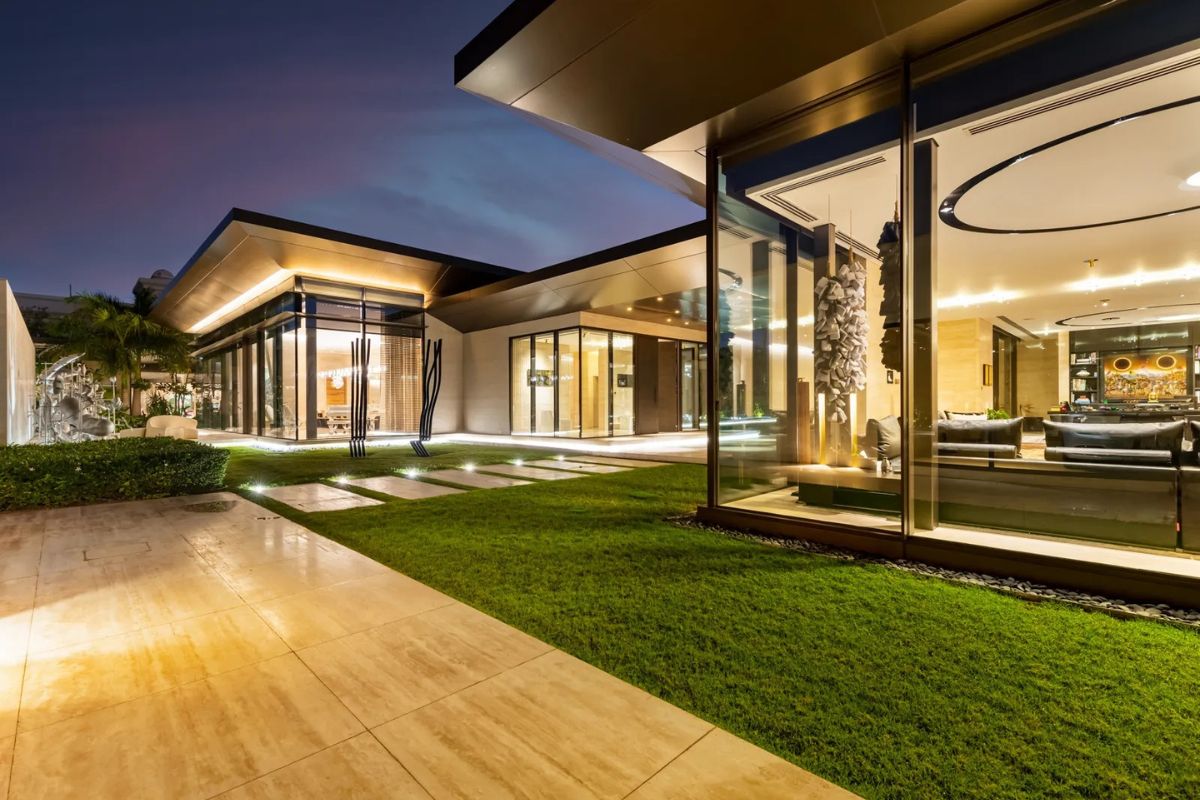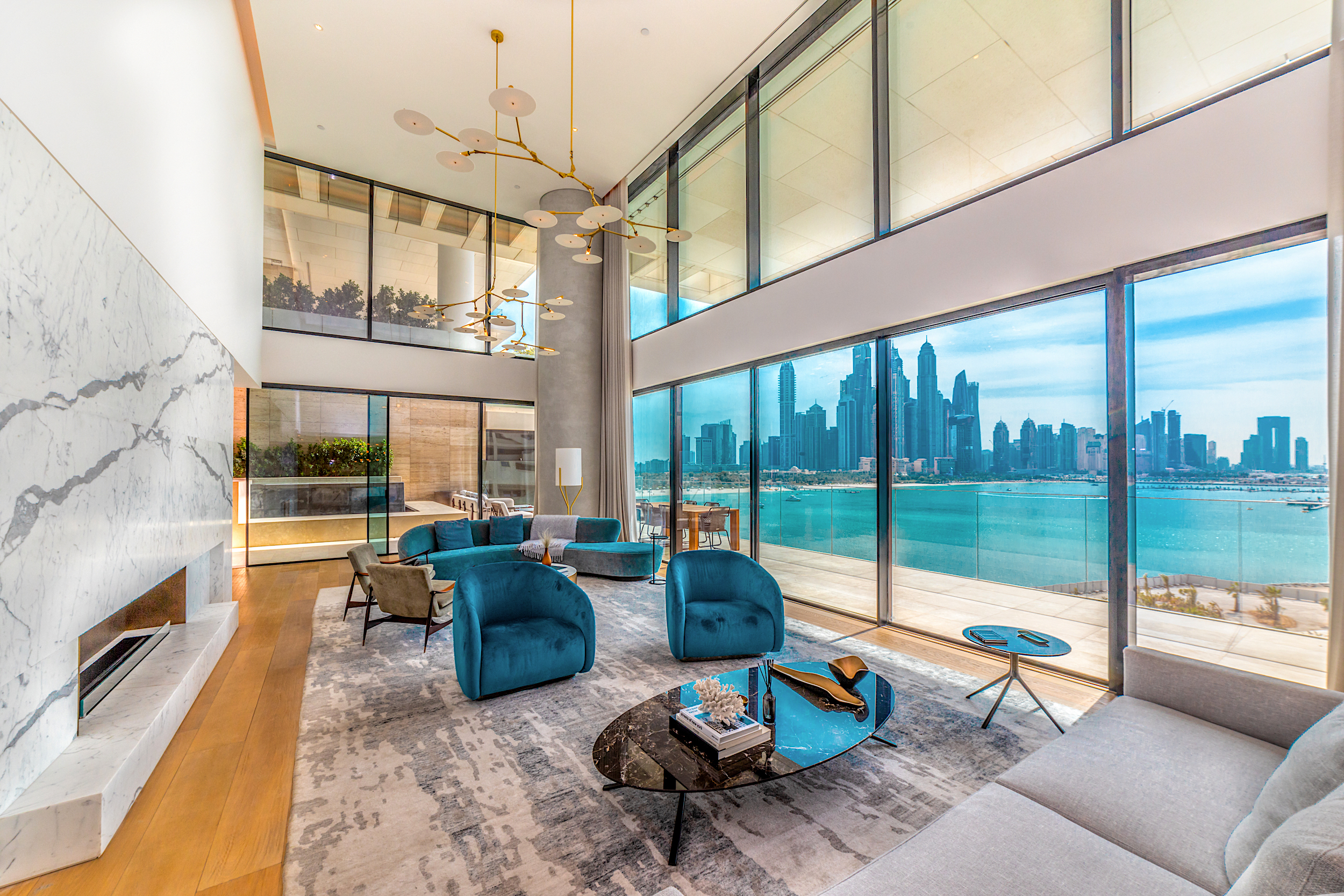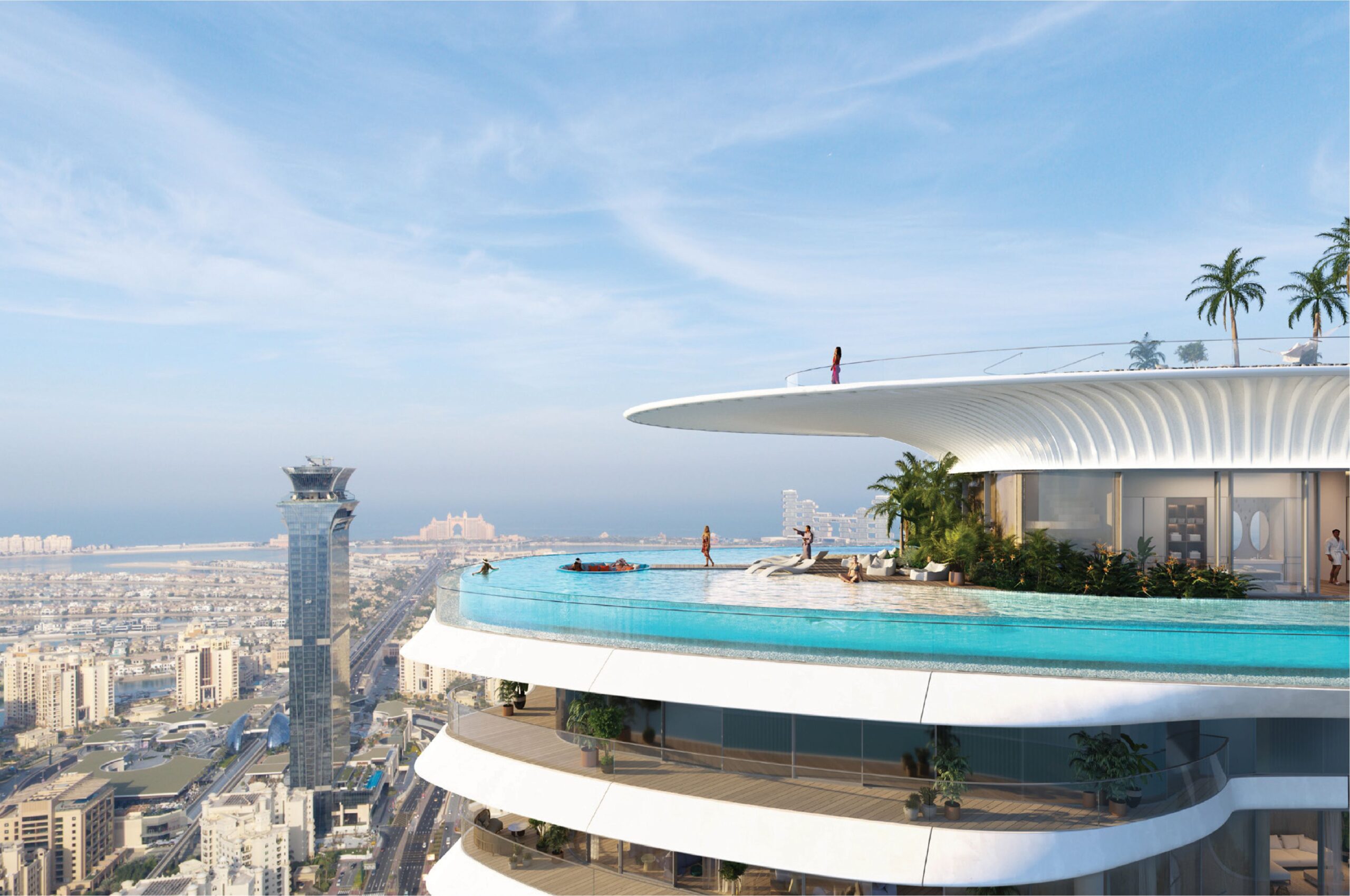Dubai’s dynamic real estate market stands as a beacon of opportunity for global investors, offering the duality of swift appreciations in short-term investments and the promise of steady rental yields over longer horizons. Whether aiming to capitalize on the lucrative property prices Dubai presents or secure a future with stable income through rent in Dubai, the city’s property landscape caters to diverse investor aspirations.
Navigating the maze of real estate investment in Dubai demands a strategic approach, with considerations ranging from legal aspects of ownership for international buyers to understanding the financial nuances that underscore the market’s potential. This article will guide prospective investors through the essentials of making informed decisions in the vibrant realm of real estate Dubai, highlighting routes to owning houses for sale in Dubai, exploring Dubai property finder tools, and uncovering the advantages that Dubai villas for sale have to offer.
Why the UAE?
The UAE’s economic landscape presents a compelling case for real estate investment, characterized by robust growth and strategic policies. In 2023, the UAE’s GDP grew by 3.0%, with projections indicating an increase to 4.7% in 2024. This growth is supported by a significant expansion of the non-oil sector, which saw a 5.9% increase in the first half of 2023 alone. Such economic dynamics create a fertile ground for real estate investments.

Economic and Policy Strengths
- Tax-Free Benefits: Investors in Dubai enjoy a tax-free environment, with no personal income tax, capital gains tax, or property tax, which significantly enhances the profitability of investments.
- Strategic Geographic Location: Dubai’s position as a crossroads between East and West offers unique advantages for global trade and investment, enhancing its appeal as a prime location for expatriates and international businesses.
- Government Support: The Dubai government fosters a business-friendly environment with policies such as tax exemptions and free trade zones, making it an attractive destination for foreign investors.
- Visionary Development Projects: Projects like The Dubai Creek Tower and Marsa Al Arab not only enhance the city’s global stature but also drive up real estate values.
Investment Opportunities and Benefits
- Diverse Real Estate Options: From luxury villas to commercial spaces, Dubai offers a variety of real estate options that cater to different investment strategies, including high rental yields from short-term rentals and long-term appreciations.
- Foreign Ownership: Since 2002, foreigners have been allowed to buy property in designated freehold areas, making it easier for international investors to own and trade real estate.
- Visa Incentives: The UAE Golden Visa program, which allows for long-term residence for investors, further bolsters the attractiveness of the real estate market.
-resized.webp)
Market Stability and Growth
- Economic Resilience: Dubai’s economy has shown resilience against global economic fluctuations, supported by its diversified economy and strategic developments, which safeguard investments.
- Future Growth Prospects: With ongoing infrastructure developments and government reforms, Dubai is poised for continued economic growth, which is expected to drive further demand in the real estate sector.
This robust economic framework, combined with strategic location and investor-friendly policies, makes the UAE, particularly Dubai, a lucrative arena for real estate investments.
Understanding the UAE Real Estate Landscape
Dubai’s real estate landscape continues to evolve with a robust occupier market, witnessing a significant 34.7% increase in rental contracts in Q4 2023 compared to the previous year. This surge reflects a growing demand, driven by both residential and commercial sectors. The market is predominantly residential, with nearly 90% of transactions involving residential properties. This trend is particularly pronounced in luxury housing and villas located in prime areas like Palm Jumeirah and The Greens, indicating a shift towards high-end living spaces.

Market Trends and Opportunities
- Capital Appreciation: Investors gain from holding properties in high-growth areas, building substantial long-term wealth.
- Off-Plan Investments: Buying properties during the pre-construction phase offers the potential for selling them at a higher price upon completion.
- Diverse Investment Vehicles: Real Estate Investment Trusts (REITs) and real estate crowdfunding allow investors to diversify holdings and reduce risks.
- Pre-Launch Opportunities: Early investors benefit from purchasing properties at discounted rates before official launches.
Growth and Stability
The construction sector in Dubai remains vigorous, supporting a steady demand for both residential and commercial properties, which contributes to consistent capital appreciation over time. Emerging neighborhoods provide opportunities for more affordable investments compared to established areas, promising long-term value growth. Despite inflation concerns possibly leading to rent increases in 2023, the overall market is expected to maintain its strong performance into 2024. This ongoing strength is underpinned by no fixed minimum investment amount, allowing flexibility based on location and property type preferences.

Legal Framework and Ownership Rights for Foreign Investors
Freehold and Leasehold Ownership Rights
- Freehold Ownership: Foreign investors can purchase properties in designated freehold areas without requiring a local sponsor, enhancing Dubai’s appeal to international investors.
- Leasehold Arrangements: Governed by Dubai law No. 33 of 2008, leasehold arrangements provide clarity on lease terms and conditions, offering a structured approach for foreign investors.
Visa and Taxation Benefits
- Visa Incentives: The UAE’s visa structure includes the 10-year Golden Visa and long-term investor visas, which offer numerous benefits and encourage long-term residency.
- Taxation Advantages: Dubai’s Double Taxation Avoidance Agreements (DTAAs) protect investors from double taxation, optimizing investment returns.
Property Registration and Legal Safeguards
- Dubai Land Department: This body oversees property registrations, ensuring access to essential documents like title deeds and maintaining transaction records.
- Legal Transparency: Laws such as Dubai law No. 7 of 2006 guarantee transparency and accuracy in property transactions, safeguarding investor interests.
Compliance and Regulation
- RERA’s Role: The Real Estate Regulatory Agency (RERA), established under Dubai law No. 16 of 2007, imposes stringent requirements on developers to protect investors, highlighting the importance of compliance with local real estate regulations.
Understanding Ownership in Various Emirates
- Ownership in Abu Dhabi: Post-2019 amendments allow foreigners to own properties in designated investment zones, reflecting a broader scope for international investors in the UAE.
- Usufruct and Lease Rights: In Sharjah, foreign nationals can acquire usufruct rights for up to 100 years, demonstrating the emirate’s flexible approach to foreign investment in real estate.
Strategic Investment Structuring
- Optimizing Tax Efficiency: By strategically structuring property investments, investors can enhance profitability and ensure tax efficiency in Dubai’s real estate market.
Financial Considerations and Investments Benefits
Rental Yields and Tax Benefits
- Competitive Rental Yields: Investors in Dubai enjoy rental yields that often range between 6% and 10%, which is competitive compared to many other global cities.
- Favorable Tax Environment: The absence of income, capital gains, and property taxes in Dubai creates an advantageous financial environment for investors, allowing them to maximize their earnings.
Strategic Financial Planning
- Market Research: Conducting thorough and ongoing market research is critical for making informed decisions and maximizing investment returns in Dubai’s real estate market.
- Financial Planning: Establishing a clear and comprehensive financial plan is essential for successful real estate investments in Dubai.
Investment Costs and Financing
- Minimum Down Payment: For non-residents looking to invest, the minimum down payment required for a property in Dubai is typically 20% of the property’s value.
- Mortgage Options: Most UAE banks offer mortgage financing up to 75% of the property value for non-residents, providing flexibility in funding.
Taxes and Fees on Property Purchase
- Transfer Tax and Other Fees: When purchasing real estate in Dubai, investors are subject to a transfer tax of 4%, a registration fee that varies with the property value, and additional administrative fees for tax payment and certificate of ownership issuance.
Steps to Invest in Real Estate in the UAE
Identify the Property Type and Intentions
Firstly, investors should clarify their intentions, whether for residing, investment purposes, or a combination of both. Choosing between independent houses or apartments depends on family requirements. Additionally, it’s crucial to consider the property’s status—whether it’s off-plan, ready to move in, or a resale property.
Select the Area
Selecting the right area is pivotal. Investors should consider their lifestyle preferences and the potential return on investment (ROI) (https://realestatemarket.us.com/best-countries-to-invest-in-real-estate/) when choosing the location.
Determine Financing
Understanding financing options is essential. These might include outright purchase, securing a mortgage, or other forms of loans. For non-residents, it’s important to understand currency differences and consider opening a local bank account.
Find the Property
Setting a budget and listing down requirements will guide investors in exploring various property options available on property finder platforms, which are pivotal in the property selection process.
Sign the Memorandum of Understanding (MoU)
After making an offer, investors need to sign a Memorandum of Understanding (MoU) with the Dubai Land Department and pay an initial deposit, usually about 10% of the property price.
Prepare Documents
Gathering necessary documents is a crucial step. For residents, this includes the Emirates ID and for all investors, a no-objection certificate (NOC) from the developer is required.
Register the Title Deed
Finally, registering the title deed with the Dubai Land Department marks the completion of the property acquisition process.
Conclusion
Through this exploration, we’ve shed light on the diverse and enticing possibilities that Dubai’s real estate market presents to investors worldwide. By delving into the economic backdrop, legal framework, and financial considerations that underpin the market’s allure, it’s evident that Dubai not only offers lucrative opportunities for capital gains and competitive rental yields but also ensures investor confidence with its robust regulatory environment and strategic location. The insights provided aim to equip prospective investors with the knowledge needed to navigate this vibrant market, underscoring the importance of strategic planning and thorough research in realizing the full potential of real estate investments in Dubai.
As we conclude, let us reiterate the essence of investing in Dubai’s real estate: a harmonious blend of opportunity, growth, and security. The city’s continual development, supported by visionary projects and investor-friendly policies, sets a dynamic stage for both seasoned and novice investors. Reflecting on the broader implications, it becomes clear that investments made in Dubai today are not just transactions but steps towards securing a prosperous future in one of the world’s most forward-thinking cities. In light of this, we encourage investors to seize the opportunities that Dubai offers, leveraging the strategic insights and considerations outlined in this article to maximize returns and achieve investment success.




